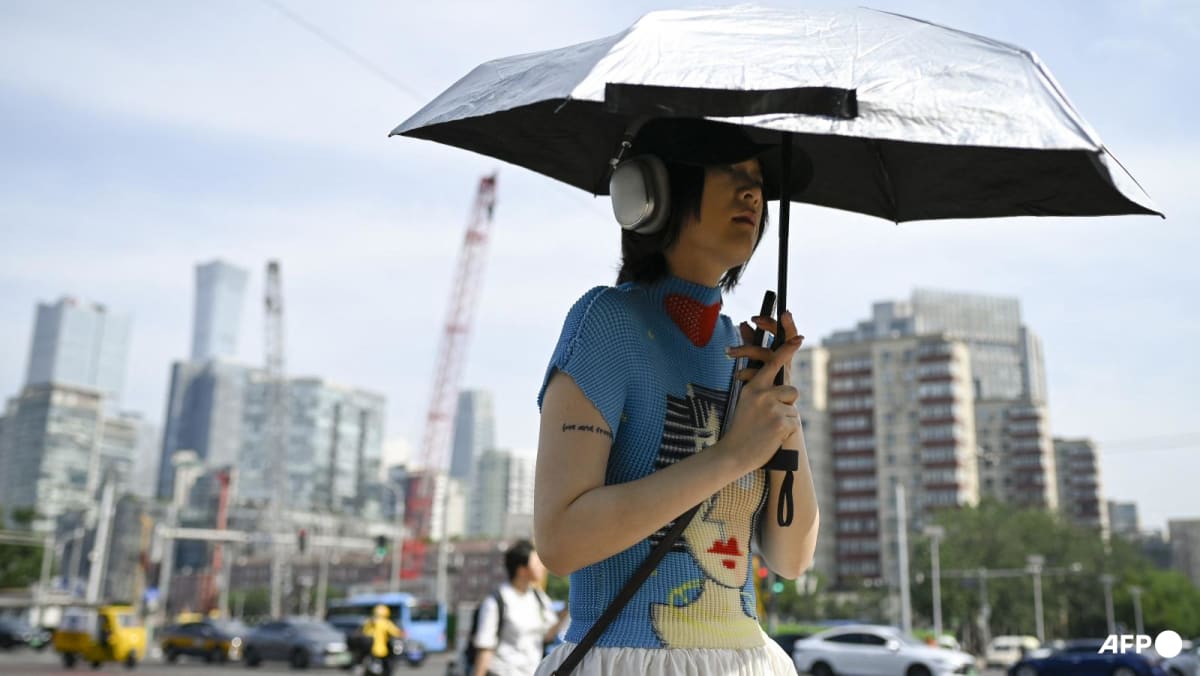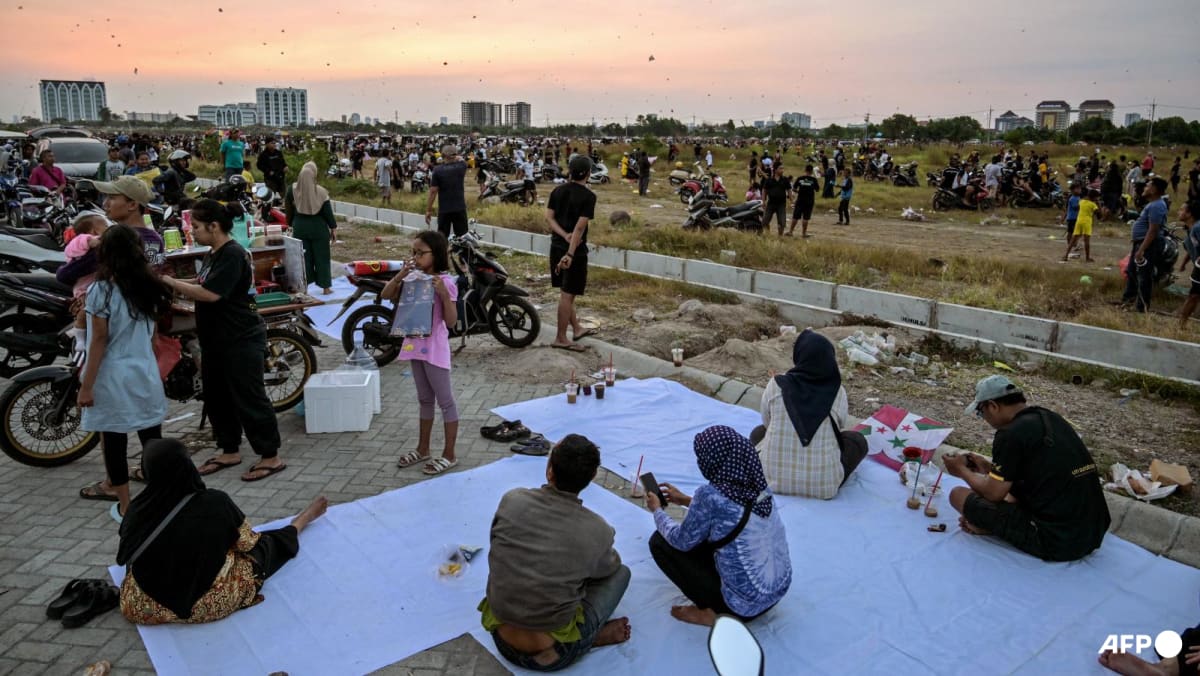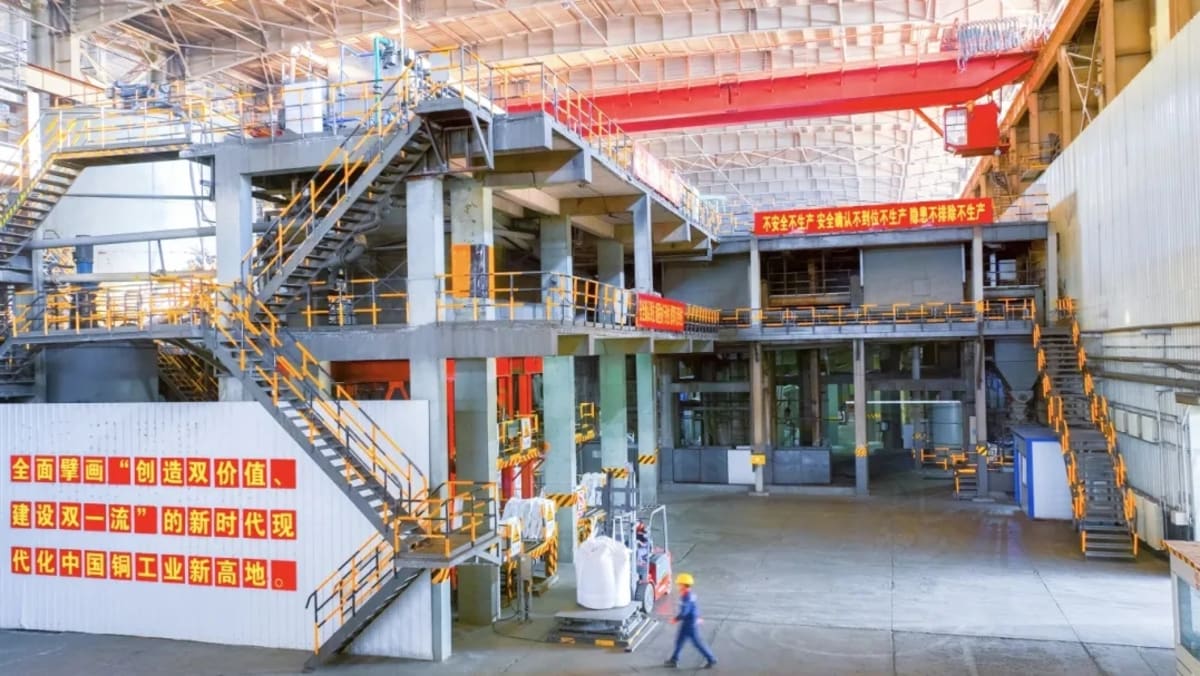Despite the beating sun, legions of delivery drivers zipped through downtown areas at noon to bring sustenance to Beijing’s office workers.
A few lazed on the backs of their scooters in a shady spot, while elsewhere, people cooled off with ice creams or by taking a dip in the city’s canals.
CLIMATE GIANT
Beijing is still a few degrees short of breaking its record for the hottest-ever June day, set at 41.1 degrees Celsius in 2023.
Human greenhouse gas emissions are driving climate change, which causes longer, more frequent and more intense heatwaves.
China is the world’s largest producer of carbon dioxide, a potent greenhouse gas, though it has pledged to bring its emissions to a peak by the end of this decade and to net zero by 2060.
The country has also emerged as a global leader in renewable energy in recent years as it seeks to pivot its massive economy away from highly polluting coal consumption.
In a shady spot near an office building, 42-year-old Lucy Lu spent her lunch break with friends, kicking a shuttlecock through the air – a traditional Chinese game known as “jianzi”.
“I was born and raised in Beijing, and summer here has always been like this,” she said.
“But I do think when the temperature goes over 40 degrees Celsius, there should be some time off or work-from-home options to reduce the risk of heatstroke.”













